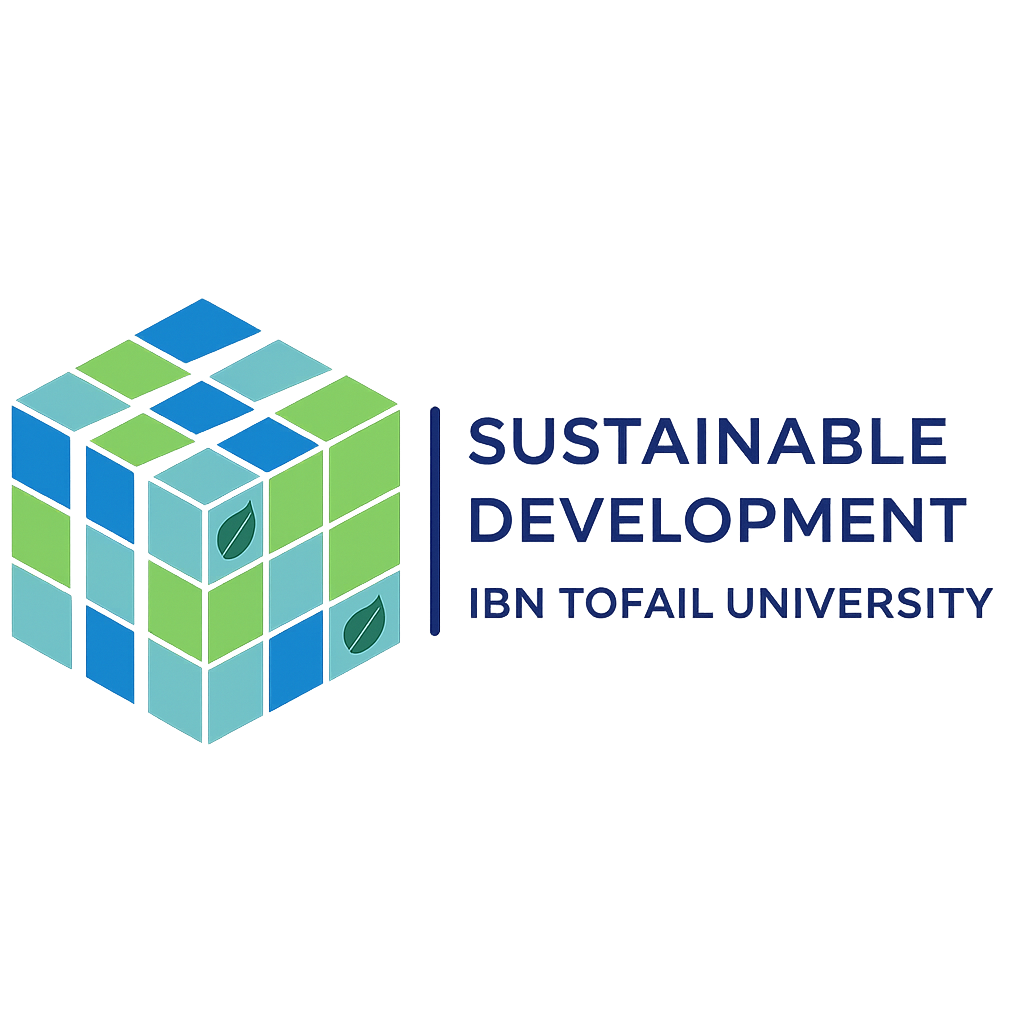
Event : 11 July, 2025
Every university tells its story through many symbols, its buildings, rankings, research, and its vision for the future. These achievements reflect ambition and perseverance, and Ibn Tofail University continues to advance in these areas with humility and purpose. The goal is not to impress, but to improve, to build spaces that serve people, and knowledge that uplifts society. Yet the essence of a university can never be measured by architecture or statistics alone. Its real greatness lies in its people, in the students and staff who bring those spaces to life every day. Education is not only about knowledge; it is about belonging. Behind every new laboratory, library, or lecture hall stands a human story; one of curiosity, perseverance, and sometimes unseen struggle. Among these stories are those of students with disabilities, whose journeys remind us that excellence means nothing if it is not shared. True progress is not about rising above others; it is about rising with them.
To include is not to add, but to understand. Real inclusion begins before the first lecture, when a university chooses to know its students, to listen, to prepare, and to make learning possible for all. Each year should begin with awareness, evaluation, and anticipation: identifying every student’s needs, ensuring the right conditions, and adapting structures when necessary. Students should never have to fight for accessibility or waste energy searching for tools that should already exist. When institutions anticipate instead of react, they transform barriers into bridges and turn equality into everyday reality. Inclusion, then, is not a policy; it is a culture of care, built through fairness and foresight.
On July 11, 2025, the Empowerment Center at Ibn Tofail University organized a meeting that embodied this spirit. It was not a lecture, but a genuine dialogue, one that seeks to turn listening into long-term action rather than vague words. Students with disabilities were invited to share their lived experiences, not as a formality, but as the foundation for real institutional change. Their voices carried purpose, and their stories became the first step toward concrete measures. The meeting proved that inclusion at Ibn Tofail University is no longer an abstract concept but a reality in motion, built through voices, responsibility, and follow-through.
During the meeting, students expressed needs that were both practical and profound. Visually impaired students asked for Braille printers, tactile paths, and screen-reading tools to learn independently. Hearing-impaired students requested soundproof spaces, hearing aids, and subtitled lectures. Students with reduced mobility emphasized the importance of safe pathways, accessible elevators, and nearby housing. Yet the most powerful message was moral, not material: they asked for understanding, not as a form of empathy or privilege, but as a form of justice and equal regard. Inclusion is not a favor or an act of kindness; it is the right to exist and study with dignity. Their courage turned the conversation from what they lack to what society still needs to learn.
Many barriers are not physical but pedagogical. Accessibility is not limited to ramps or elevators; it also depends on how knowledge is shared and how each student is guided. Students at the meeting spoke about the need for adaptive equipment and technologies that reach every learner, because studying should not mean struggling with the absence of tools. They also emphasized that professors often want to help but do not always know how. This lack of training leaves both sides uncertain: students feel misunderstood, and teachers feel unprepared.
It is unfair to teach everyone in the same way while ignoring their unique needs and learning struggles. Inclusion is not about lowering expectations; it is about following up, adapting, and ensuring that no student is left behind simply because the system wasn’t designed for them. As one student expressed, “Our goal is not to be tolerated but to be taught.” When professors receive guidance and training in inclusive methods, they gain the confidence to teach with equity, turning difference into strength and learning into a shared human journey.
Since its foundation, the Empowerment Center has turned student needs into institutional priorities. In partnership with 2ESH, it has equipped classrooms with adaptive computers, improved accessibility across campus, and launched awareness campaigns that transform perception into empathy. The July 11 meeting deepened that mission by creating a roadmap: annual assessments of student needs, maintenance of assistive tools, and specialized training programs for teachers and administrators. A digital platform will soon allow students to report accessibility challenges directly, ensuring quick, transparent solutions. These actions show that inclusion is not a seasonal promise; it is a living structure built through accountability and collaboration.
The path ahead is guided by research and moral clarity. The Social Model of Disability reframes difference: it is not the body that limits a person, but the environment that fails to adapt. The Capability Approach insists that justice means expanding each individual’s freedom to achieve their potential. And the Universal Design for Learning (UDL) proves that when education is designed from the start for everyone, no one is left behind. These frameworks remind us that inclusion is not about assistance; it is about fairness by design. Ibn Tofail University follows these principles not to display success but to learn, to grow, and to serve better each year.
The July 11 meeting was not just an event; it was a statement of values. It reminded us that while infrastructure and rankings build prestige, humility and service build legacy. Ibn Tofail University’s true strength lies in the lives it uplifts, in its ability to turn differences into opportunities and compassion into structure. Each academic year must renew that promise: to listen more, understand better, and act faster. A university can either open paths that lead students toward their dreams or close doors that make them feel unseen. When a student is left behind, they are not disabled by biology, but disabled by society’s silence. Yet when they are supported, they rise, and with them rises the entire institution.
